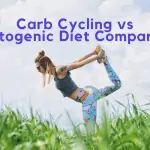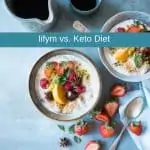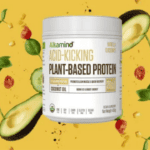We know there are loads of proteins on the market, but did you know that hemp protein is increasingly growing in popularity? In this article we will be comparing hemp protein vs whey protein to see how the benefits stack up. It doesn’t have the “properties” of the type of hemp you may be thinking of – the protein is actually extracted from the husked seeds of the plant, so, no, it won’t make you high!
Topic Contents
Hemp Protein vs Whey Overview
Hemp Protein is high-quality and full of fiber which not only helps you to feel fuller for longer, but also contains those heart-healthy essential omega fatty acids. And it tastes delicious! Whey protein is more traditional, and for good reason!
Hemp Protein
Proteins are typically rated with a Biological Value (BV). This value refers to how quickly the body can use the consumed protein. The BVs for both whey protein isolate and concentrate are about 159 and 104.
The BV of hemp protein is reportedly much lower which means that the body absorbs hemp protein slower and that in turn means it’s not the best choice as a post-workout recovery. Post-workout, the body needs
nutrients quickly.
But, hemp protein is a smart choice for in between meals and just before bed when your body requires a steady protein supply.
Additionally, hemp protein is a good option for vegetarians or those who are lactose intolerant. Hemp is free of both animal products and lactose and it’s easier to digest so you avoid uncomfortable cramps and bloating that sometimes come with protein consumption.
When it comes to nutritional values, hemp contains an average of just 50 calories, 4g of carbs, 1.5g fat and 6g of protein (based on a 2 tablespoon measurement). It’s also packed full of iron and calcium. In the Hemp vs. Whey protein debate, hemp is certainly no slouch!
To try hemp protein, we recommend starting with this brand (see link)
Whey Protein
Whey protein powder comes from cow’s milk which consists of two proteins: whey and casein. It also contains water, milk fat, and lactose. The whey is filtered out during the cheese-making process as it’s not needed
in cheese.
Just like hemp protein, whey helps to repair muscle tissue, provide energy, and aids in hormone regulation. Nutrition-wise, whey is very similar to hemp. It’s a complete food with protein, carbs, and fat and in a 2 tablespoon serving, whey offers a hefty 120 calories; 20g protein; 1g fat, and 4g carbohydrates. This powder also provides calcium and iron and the protein in whey is a mixture of non-essential and essential amino acids.
Unlike hemp, the small amount of fat in whey protein comes from an animal source and the carbohydrates are mostly lactose.
For a high quality whey protein, we recommend starting with Optimum Nutrition Whey
Hemp Protein vs Whey – Things To Consider
When deciding between hemp protein vs whey powder to take, there are a few differences to consider. Whey protein contains lactose, so if you are lactose intolerant, your body won’t be able to tolerate this protein. If this is the case, consider either whey protein isolate – it contains minimal amounts of lactose and is more concentrated – or hemp protein.
Whey and hemp protein do have some side effects, known issues and, of course, advantages including:
- Digestion: whey protein can be rapidly digested, which means it’s great after a heavy workout as the body will utilize it quickly.
- Hemp protein digests slowly so it’s ideal after a workout.
- Unlike the natural hemp protein products, whey protein supplements are often mixed with artificial ingredients as well as sweeteners to make the supplement more palatable. Several of the additional ingredients can detract from weight loss goals as well as suppress immune function and cause sugar cravings.
- Whey protein is known for causing digestive disturbances and bloating if you are lactose intolerant. So if you have a milk allergy it’s best to avoid whey. Hemp, however, has to date had no intolerances or allergies associated with it.
- Where hemp proteins contain the good, natural fats, whey protein contains both cholesterol and saturated fats.
- You will need to consume less hemp protein than whey protein. Hemp does not contain fillers and it supplies trans-acids too, so you need much less to benefit.
- Hemp is also more soluble. This means the body will digest the natural ingredients better than it
will whey. - Hemp proteins contain natural fiber which aids with digestion.
- Hemp, being more natural, has a friendly type of bacteria which helps not only with digestion but also helps you to keep lean.
- Hemp is alkalizing, since it is a plant-based protein, it contains chlorophyll which alkalizes the body to help you maintain a desirable PH level.
When it comes to choosing the right protein, it’s really up to what you want to achieve from your health and training routine and which protein your body is going to better digest and utilize. Ultimately, when it comes to whey protein vs hemp protein, the better option is likely contingent on what type of workout routine you have and your unique set of health goals.
Alt Protein Team is a team of professionals and enthusiasts committed to bringing you the most up-to-date information on alternative protein, health and wellness, workouts, and all things health-related. We’ve reviewed a lot of products and services so you don’t have to guess when you spend your hard-earned money on them. Whether you want to shed some pounds, build lean muscle or bulk, we can help you figure out what you need to do and what you need to have to achieve your goals.










Thank you for this informative article.
I am about to start using hemp protein, as I have found much too much bloating and constipation from whey over time. In general, hemp seems like a more natural and healthier option overall for me.
Despite the plethora of research touting the superiority of whey to all other proteins, I feel that for myself my gains have slowed dramatically since I started pounding down whey in search of more muscle growth.
When I was in college I never drank a single supplement, yet I was bigger and stronger from eating lots of high protein whole foods. Granted I’m not 19 anymore, but I’m slowly returning to this more naturalistic approach of eating my foods, rather than looking for the quick fix through supplements.
One question I did have from the article, though, was regarding the amount of hemp one might need. You stated that one would need less hemp than whey, as it had no fillers– but how much less?
Traditionally I’ve aimed for total daily protein intake around 1g/lb of body weight, and at 150lbs I’ve been getting 50g of that a day through whey (2 shakes, 25g each).
With hemp rated around 15g per shake, do you think 30g daily would be as effective for me as my 50g of whey, so long as I continue to eat around 100g of protein through other whole foods?
Thanks so much.
I really enjoyed the article and look forward to your response.
Hey Alex – I’ll caveat all this my saying I’m not a doctor and my statements are just opinions. You are spot on about whole foods being the best source. They always are! Supplementation is really a compromise between expediency and poor diet. In other words, I’d rather drink a shake then eat a big mac. However, it’s ALWAYS best to eat healthy whole foods. In your case, personally I’d try to up my whole food daily protein + taking 15 grams per hemp. You can definitely flex as needed, so if you miss a meal (and don’t have good alternatives) take an extra shake. Honestly, I think 50g of protein supplements is on the high side and I know my body would struggle to absorb that much, especially in close proximity.
Hello, thank you for this article! I have a question considering effect of hemp on the human brain. When i was buying hemp
Powder in a bio shop, a shop assistant told me that I shouldn’t consume too much of hemp as my mind will get a bit foggy and slowish, is it true? Elena
Hi Elena,
Thanks for your question. I have never heard of hemp protein powder affecting the brain in such a way. I don’t know if they were referring to the effects of THC, the active ingredient in marijuana. However, most — if not all — hemp products are free from any detectable amounts of THC.